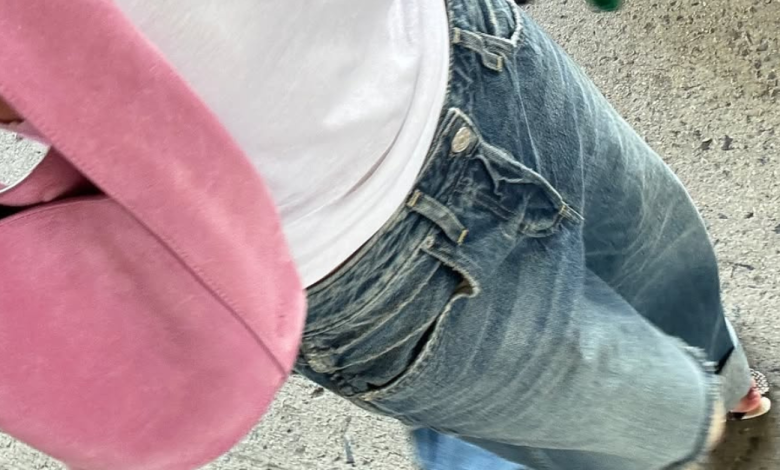Discover the Must-Have Summer Outfits That Are Replacing Skinny Jeans This Season

Skinny jeans are currently making a comeback, but if you’re not quite ready to dive back into that trend, there’s another outfit formula on the rise that fashion enthusiasts are embracing repeatedly. The look? Loose, non-skinny jeans paired with fitted tops. This denim ensemble has become the summer uniform, achieving a perfect balance between relaxed and polished without appearing overly styled.
From low-slung wide-leg jeans to slightly baggy straight-leg options, the allure of loose denim lies in its effortless vibe. When paired with a fitted tank, tee, or second-skin top, the result is an instantly cooler appearance. It feels as though you didn’t overthink it, yet somehow got it just right. The contrast of silhouettes is what makes this look feel so fresh and current.
We’ve noticed this combination everywhere in street style photos surfacing online from coast to coast, and it’s easy to understand why it’s gaining popularity. It’s suitable for rooftop drinks, running errands, and travel days—essentially whatever your summer plans entail. By adding sleek sneakers, minimal sandals, or even kitten heels, the outfit remains stylish and versatile.
If you’re curating your summer wardrobe, consider making this your go-to base. Simply swap out the top and shoes, and you can achieve a whole new vibe. It’s the easiest way to refresh your favorite non-skinny jeans—no overthinking required, just the laid-back, cool energy that always shines through.
Scroll on to discover the anti-skinny-jeans outfit combination everyone will be sporting this summer:
– This crisp white cropped T-shirt paired with dark denim exudes a sense of luxury.
– The pop of pink makes this look ideal for the summer season.
– A scarf belt elevates this black-and-white outfit beautifully.
– Olive green is a luxurious color choice for summer, pairing perfectly with classic blue jeans.
– Perfection! I have absolutely no notes for this simple tank-and-dark-denim look.
– White tank + loose denim + bucket hat = the ultimate summer uniform.
– Any outfit featuring faded black jeans and a fitted gray T-shirt effortlessly conveys laid-back luxury.
– Not to play favorites, but this outfit combination is at the top of my list.
– For an extra touch, try double layering your T-shirts with baggy jeans.
– You can’t go wrong with a fitted black top and comfy jeans, especially when traveling. It’s an outfit that truly works for you.
– Layer an oversized leather jacket over this reliable outfit combo for a seamless day-to-night transition.
– Every summer wardrobe should include a quality striped T-shirt, a style that pairs perfectly with loose denim.
– We’re all in for this head-to-toe neutral denim look.
Stay tuned for more updates from HiCelebNews as we continue to bring you the latest in fashion and style!
Related Posts
- The Top 4 Fashion Trends Set to Take Over Tennis Style for Women in 2025
- Discover the Top 21 Skincare Tools That Deliver Instant Face-Lifting Results in Just 5 Minutes!
- A Week of TikTok’s Hottest Blushes: Discover Which Shade Took the Crown!
- Reviving the Past: Why Today’s “Tacky” Color Trends Will Be the Hottest Chic Styles of Fall 2025
- Essential Picks: What You Should Buy Before Sephora’s Sale Wraps Up
اRelated Posts:





